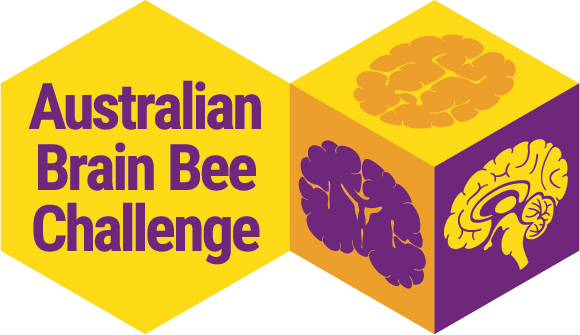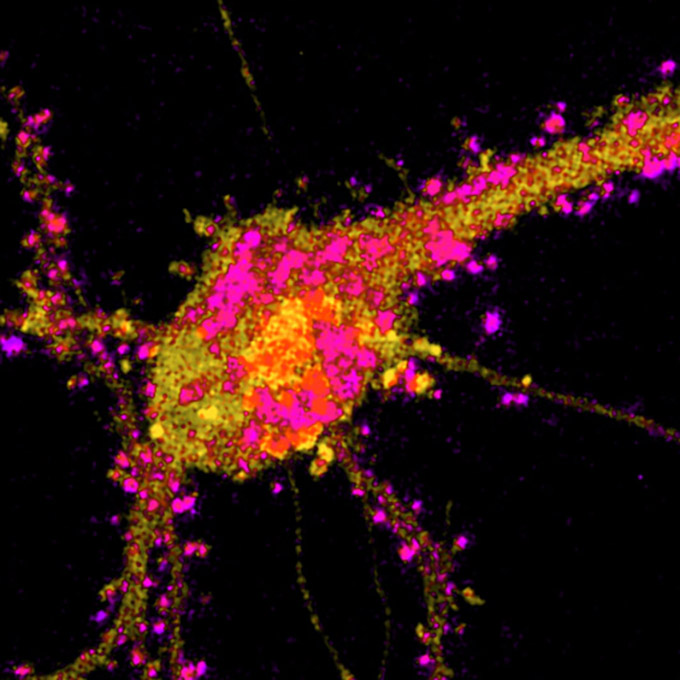You can help progress our research
You don't have to be a scientist to get involved with QBI. We offer a range of opportunities for everyday people to connect and progress our research and discoveries.
The foundation for all of our work is the funding we receive through a range of sources, including philanthropic donations from our generous supporters. There are many ways to give to QBI: directly, through planned giving, or holding fundraising events that entertain or challenge supporters as they dig deep to help us better understand the brain.
We also offer opportunities for students to learn directly from our inspiring researchers through lab placements, and for community members to tour our facilities and attend events. Finally, you can give one of the greatest gifts of all by volunteering for studies to advance treatments and diagnostics for brain diseases and disorders.
How you can support us
What your donations fund
Through your support you are helping QBI solve the major neurological health challenges facing our community today

World leading research

Brightest scientific minds

Solutions to global health challenges
Brain Research Endowment Fund
Find out more Donate to research
QBI’s Brain Research Endowment Fund supports scientists exploring the unknown, which will guide new research on finding cures for diseases or improving quality of life.
Community & school programs

Australian Brain Bee
The Australian Brain Bee Challenge (ABBC) is a competition for high school students in year 10 to learn about the brain and its functions, learn about neuroscience research, find out about careers in neuroscience and to dispel misconceptions about neurological and mental illnesses.
Participate in a research study
By being part of our human research studies you can make a valuable contribution to improving the lives of people living with brain disease and disorder.
Research in action
- 26 Oct 2022A/Professor Jan Kaslin
Australian regenerative Medicine Institute
Monash University
Clayton VIC 3800 - 24 Mar 2021Dr Marlene Hao
Department of Anatomy and Neuroscience,
The University of Melbourne, Parkville, VIC 3010 Götz: Ageing Dementia Research
Group leader
Professor Jürgen Götz
Director of CJCADR & Director of CJCADR - GLQueensland Brain InstituteResearcher profile is public:1Supervisor:Researcher biography:Professor Jürgen Götz (PhD, Dr. habil, FAHMS, GAICD) is Foundation Chair of Dementia Research, Director of the Clem Jones Centre for Ageing Dementia Research at the Queensland Brain Institute (University of Queensland), NHMRC Leadership Fellow and Ultrasound Team Leader. In 2023 he became the Lesleigh Green - Bill and Nancy Green Endowed Chair in Dementia Research. Jürgen Götz performed undergraduate studies at the Biocenter of the University of Basel, before joining the laboratory of Nobel Laureate Georges Köhler to obtain his PhD degree in immunology. Subsequently, he took up postdoctoral positions at UCSF (San Francisco) and Sandoz Ltd (now Novartis, Basel), and worked as Research Group Leader (venia legendi, Dr. habil.) at the University of Zurich (Switzerland). Before taking up his current position, Jürgen Götz was a Professor and Chair of Molecular Biology at the University of Sydney.
Jürgen Götz is a highly cited researcher (Clarivate) and an expert in basic and translational research in Alzheimer's disease (AD), focusing on the cellular and molecular mechanisms of how Tau and Aβ cause neurodegeneration, using transgenic and cellular models, and exploring low-intensity ultrasound as a novel treatment modality for AD and other brain diseases (>220 publications, including in leading journals such as Science, Cell, Lancet and Neuron; h-index = 86, 27,800+ citations, Google Scholar). Jürgen Götz and his team have built a clinical trial-ready therapeutic ultrasound device and started a first-in-human safety trial in 12 Alzheimer patients (April 2023).
Body: Professor Jürgen Götz: Ageing dementia and therapeutic ultrasound
Professor Jürgen Götz: Ageing dementia and therapeutic ultrasoundThe Götz laboratory, which forms part of the Clem Jones Centre for Ageing Dementia Research (CJCADR), aims to understand disease initiation and progression at a molecular and cellular level using cellular and animal models, and to develop novel therapies. We are applying the tools we are developing to also understand fundamental mechanisms of memory or the physiological role of proteins implicated in disease. In recent years, a major focus for the group is in developing therapeutic ultrasound into a treatment modality for human disease.
Team leader - Exosomes, tau spreading and aggregation team
Dr Juan Polanco
Research FellowClem Jones Centre for Ageing Dementia ResearchResearcher profile is public:1Supervisor:Researcher biography:Dr Juan Carlos Polanco leads a Research team on "Exosomes and tau pathology" based in the Clem Jones Centre for Ageing Dementia Research (CJCADR) within the Queensland Brain Institute (QBI) at the University of Queensland (UQ). Dr Polanco holds an MSc in Biochemistry from the National University of Colombia, and a PhD in Molecular Bioscience from the UQ. During his doctoral studies, Dr Polanco made significant contributions to unravelling the intricate mechanisms through which SOX genes are implicated in XX disorders of sex development. Subsequently, he honed his expertise during a postdoctoral fellowship at CSIRO, focusing on developing assays for the effective detection of unstable human induced pluripotent stem cells prone to tumorigenesis. In 2013, he joined the laboratory of Prof. Jürgen Götz in CJCADR. Here, Dr Polanco embarked on his pioneering work with exosomes. In his ground-breaking and highly cited 2016 paper in the Journal of Biological Chemistry, he demonstrated for the first time that exosomes encapsulate 'tau seeds' with the ability to induce tau aggregation in recipient cells. Furthermore, he also demonstrated that neurons could internalise proximal exosomal tau seeds and then re-release a fraction fused with endogenous secretory endosomes. These re-released exosomes, delivered to interconnected neurons, showcased a potential increase in pathogenicity through this trans-synaptic mode of transport (Acta Neuropathologic Communications 2018). Since 2019, Dr Polanco has successfully secured NHMRC grants and has been mentored by Prof. Götz to establish and lead an independent research team hosted in his lab.
Team Leader — Microglia in health and disease team
Dr Liviu Bodea
Research Fellow & Research FellowClem Jones Centre for Ageing Dementia ResearchResearcher profile is public:1Supervisor:Researcher biography:Dr. Liviu-Gabriel Bodea is a Dementia Australia Research Foundation Mid-Career Fellow and leads the Microglia in Health and Disease Research Team within the Prof. Jürgen Götz Group at the Clem Jones Centre for Ageing Dementia Research at the Queensland Brain Institute (QBI), the University of Queensland (UQ).
Liviu was awarded his Dr.rer.nat. (PhD) title from the University of Bonn, Germany (2014), working in the group of Prof. Harald Neumann, an expert in microglial physiology who identified for the first time a role for the microglial receptor TREM2 (JEM 2005). Liviu then moved to Australia as the Peter Hilton Early Career Fellow in Ageing Dementia Research (2014-2019) under the mentorship of Prof. Jürgen Götz, a world-renowned leader in Alzheimer's disease.
Liviu is a brain cell biologist focusing on the functional crosstalk between microglia, the main resident immune cells of the brain parenchyma, and the surrounding cell types, both in health and disease. He has significant experience in generating and analysing both in vivo and in vitro models (from stable cell lines and primary cultures to novel genetically modified mice) in combination with various biochemical and molecular techniques, ranging from high-resolution microscopy to de novo proteome pathway analysis and generating novel mouse model through CRISPR gene editing.
Liviu has extensive experience in guiding both undergraduate and postgraduate students into the wonders of scientific research :)
Complete List of Published Work: PubMed Bibliography
Funding and Awards
2024-2027 NHMRC Ideas Grant #2030460 (sole CI, salary and research)
2022-2024 Dementia Australia Research Foundation Mid-Carrier Research Fellowship (salary and research)
2022 The University of Queensland Research Stimulus Fellowship (salary)
2019 Emergency Services Queensland Philanthropic Support (research)
2018-2021 NHMRC Project Grant #1147569 (CIB, salary and research)
2014-2019 Peter Hilton Early Career Research Fellowship in Ageing Dement (salary)
Research Impact, Leadership and Professional Activities
Dr. Bodea attracted >3100 citations (h-index 14 @Google Scholar), including 4 articles with >200 citations (Google Scholar) and 3 Highly Cited Publications (Web of Science). In 2021, Expertscape recognised Dr. Bodea as one of the top-rated researchers in the field of tauopathy, placing him in the top 0.8% of >142k published authors worldwide on tauopathies between 2012 and 2021. His work was cited in 18 patents (5 granted).
Dr. Bodea's work on the microglial TYROBP in late-onset AD (Cell 2013, co-first author, Highly Cited Publication @Web of Science) represents a milestone in the field, with >1600 citations (Google Scholar). He also revealed the complement-induced neurodegeneration of dopaminergic neurons following peripheral immune stimulation (JNeurosci 2014, first author). More recently, he coordinated studies that centred on the effect of Tau protein (molecule relevant for Alzheimer's disease) on protein synthesis (EMBO J 2019 and Acta Neuropathologica Communications 2021), the use of artificial amino acids and de novo proteome analysis for the investigation of memory (eLife 2020) and microglial physiology (STARProtocols 2023), and the role of neuronal PTEN enzyme in synaptic engulfment by microglia (Acta Neuropathologica 2020). He published authoritative reviews in the Journal of Neurochemistry (2017), Nature Reviews Neurology (2018), Nature Reviews Neuroscience (2018), and Brain Research Bulletin (2021).
Dr. Bodea acts as a grant reviewer for MS Research Australia (since 2019), Alzheimer’s Australia Dementia Research Foundation (since 2016) and NHMRC (since 2021). He was the Lead Guest Editor for a Special Research Topic in Frontiers in Cellular Neuroscience (2023), is a member of the Reviewer Board for Frontiers in Cellular Neuroscience and was a member of the Reviewer Board for the International Journal of Environmental Research and Public Health, Mental Health section. He is an ad-hoc reviewer for various top-tier publications, ranging from Science to Trends in Cell Biology.
Dr. Bodea has mentored and supervised the daily activity of PhD students (2 completed, 1 current), Honours students (4 completed, all awarded First Class distinctions), 2 research assistants, and >10 undergraduate students. His PhD students successfully received various awards (e.g., the Alistair Rushworth Fellowship, Merk-QBI Best Student Publication Award, Best Oral Presentation Award). Both his completed PhD students continue with academic careers: Dr. Joey Benetatos, following a successful post-doctoral training in the Fraenkel Lab (MIT, USA), is currently pursuing his second post-doctoral position in the Prof. Loren Looger group (UCSD, USA), and Dr. Harrison T Evans is holding an Alzheimer's Association Postdoctoral Fellowship and is the Leon Levy Fellow in the Prof. Eric Klann lab (NYU, USA).
Team leader - Molecular imaging and modelling team
Dr Pranesh Padmanabhan
Research FellowClem Jones Centre for Ageing Dementia ResearchResearcher profile is public:1Supervisor:Researcher biography:Dr Pranesh Padmanabhan leads the Molecular Imaging and Computational Modelling Team at the Clem Jones Centre for Ageing Dementia Research, Queensland Brain Institute. His team combines mathematical modelling and quantitative imaging techniques to discover pathomechanisms underlying the progression of several infectious and neurodegenerative diseases.
Pathomechanism and antibody team
Dr Liyu Chen
Postdoctoral Research FellowClem Jones Centre for Ageing Dementia ResearchResearcher profile is public:1Supervisor:Dr Esteban Cruz Gonzalez
Postdoctoral Research FellowClem Jones Centre for Ageing Dementia ResearchResearcher profile is public:1Supervisor:Mrs Keisha Jade Roffey
Senior Research Assistant/Technician/Coordinator (Supervisor)Clem Jones Centre for Ageing Dementia ResearchResearcher profile is public:0Supervisor:Miss Alison Carlisle
PhD Student & Casual Histology AssistantQueensland Brain InstituteResearcher profile is public:0Supervisor:Mr Adam Briner
PhD studentQueensland Brain InsituteResearcher profile is public:0Supervisor:Mr Jonathan Lee
PhD StudentQueensland Brain InstituteResearcher profile is public:1Supervisor:Bradley Connor
Honours studentResearcher profile is public:1Supervisor:Swara Tapaswi
Honours studentResearcher profile is public:1Supervisor:Riku Sato
Honours studentResearcher profile is public:1Supervisor:Ultrasound team
Dr Rachel De Las Heras
Ultrasound Prod Dev ManagerQueensland Brain InstituteResearcher profile is public:0Supervisor:Dr Gerhard Leinenga
Postdoctoral Research FellowClem Jones Centre for Ageing Dementia ResearchResearcher profile is public:1Supervisor:Dr Jae Song
Senior Research OfficerClem Jones Centre for Ageing Dementia ResearchResearcher profile is public:1Supervisor:Mr Matthew Pelekanos
Principal Research Technician – UltrasoundClem Jones Centre for Ageing Dementia ResearchResearcher profile is public:0Supervisor:Miss Wendy Lee
Senior Research AssistantClem Jones Centre for Ageing Dementia ResearchResearcher profile is public:0Supervisor:Miss Gina Richter-Stretton
Senior Research AssistantClem Jones Centre for Ageing Dementia ResearchResearcher profile is public:0Supervisor:Tags:Alzheimer's disease

